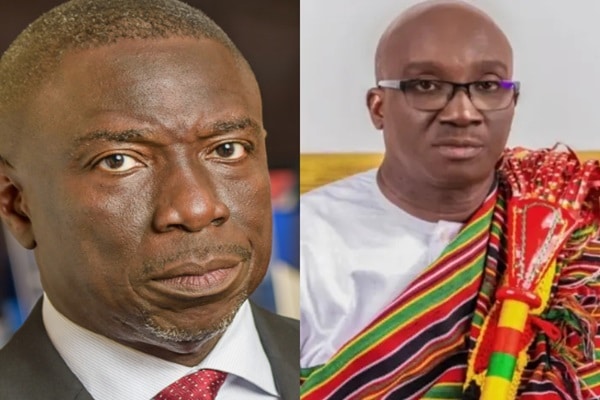BREAKING: Appeal Court Reserves Ruling On Edo Election Dispute

The Court of Appeal sitting in Abuja has reserved judgment in three appeals and a cross appeal arising from the dispute over the September 21, 2024, Edo State governorship election, in which the Independent National Electoral Commission (INEC) declared Monday Okpebholo of the All Progressives Congress (APC) as winner.
A three-member panel led by Justice M.A. Danjuma reserved its ruling on Thursday after taking final arguments from counsel to the parties involved. The judgment date will be communicated in due course.
The appeals heard include:
CA/ABJ/EPT/ED/GOV/01/2025: Filed by the Peoples Democratic Party (PDP) and its candidate, Asue Ighodalo.
CA/ABJ/EPT/ED/GOV/02/2025: Filed by Action Alliance (AA) and its National Chairman, Rufai Omoaje.
CA/ABJ/EPT/ED/GOV/03/2025: Filed by Dr. Bright Enabulele and the Accord Party.
CA/ABJ/EPT/ED/GOV/04/2025: A cross appeal by the APC and Okpebholo.
The appeals challenge the ruling of the Edo State Governorship Election Petition Tribunal, which on April 2, 2025, upheld Okpebholo’s election victory.
Lead counsel for Okpebholo, Onyechi Ikpeazu (SAN), urged the appellate court to dismiss the appeals and affirm the tribunal’s ruling, arguing that the PDP and its candidate failed to provide sufficient evidence of electoral irregularities.
Ikpeazu described the petition and the appeal as “academic exercises,” noting that the appellants conceded at the tribunal that even if the disputed votes were deducted, Okpebholo still won the majority.
He also dismissed allegations concerning the non-recording of serial numbers on Form EC25B, stating that the form was not designed to capture serial numbers. Instead, he pointed to Form EC40A, which was tendered and contained the serial numbers in question.
APC counsel Emmanuel Ukala (SAN) and INEC counsel Kanu Agabi (SAN) supported Ikpeazu’s argument, maintaining that under Sections 73(2) and 137 of the Electoral Act 2022, petitioners are required to provide polling unit-specific evidence to prove non-compliance.
Ukala highlighted that only five of the 19 witnesses presented by the PDP and Ighodalo were polling unit agents, even though the petition challenged results in over 700 polling units. He noted the petitioners failed to tender Form EC25D, which is the appropriate form to reference serial numbers, contrary to their focus on Form EC25B.
Robert Emukpoeruo (SAN), representing Ighodalo and the PDP, urged the appellate court to set aside the tribunal’s judgment, insisting that the lower court misunderstood the nature of the appellants’ case.
He argued that the petition did not contest the general conduct of the election but raised concerns over discrepancies between results collated at polling units and those announced at ward levels.
Emukpoeruo also refuted the tribunal’s claim that the documents were “dumped” without explanation, arguing that oral testimony was unnecessary since the focus was on documentary inconsistencies, particularly the absence of serial numbers on Form EC25B, as allegedly required by Section 73(2) of the Electoral Act.
After listening to all submissions, the court panel, led by Justice Danjuma, stated that its judgment on the appeals and cross appeal had been reserved, with a decision date to be communicated to all parties.
The outcome of the appeals will be crucial in determining the final status of the disputed Edo governorship seat and could have broader implications for future election litigation, especially on the evidentiary standards required under the Electoral Act 2022.
